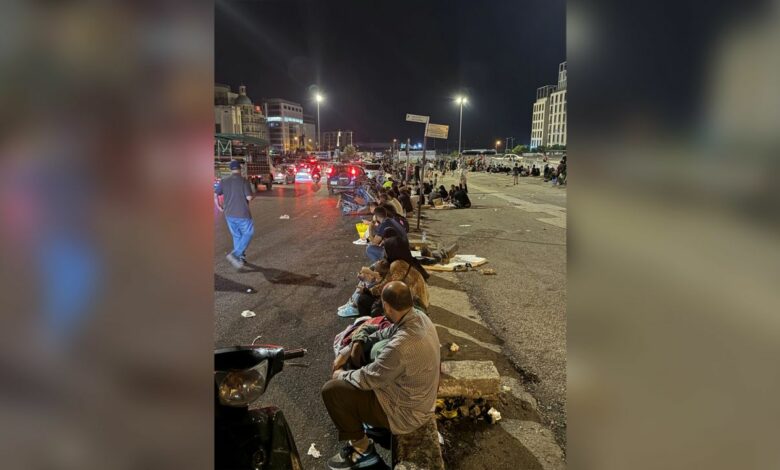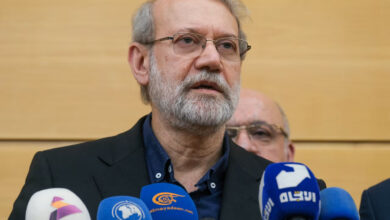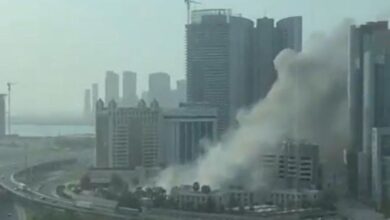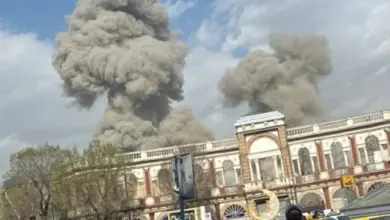
It was three a.m. and southern Beirut was under the most intense bombardment it had seen in nearly 20 years. A CNN team drove past a sea of people camped out on sidewalks, mostly on the seaside boardwalk that hugs the coast in the still untouched western parts of the city.
These were the displaced from neighborhoods being pummelled by Israeli warplanes. Some were chatting on the curb, a few lay asleep on benches and on the ground. Women cradled sleeping babies and toddlers. Children wandered the streets, snaking through double-parked cars aimlessly in their pyjamas.
On the city’s commercial Hamra Street, a crowd outside an abandoned building forced the traffic to a near stop. A man knocked down the iron gate, allowing a flood of displaced people in for shelter. A fresh wave of arrivals pulled up. Visibly exhausted women emerged from the cars hauling their kids, blankets and mattresses.
Most people were carrying little more than the clothes on their backs as they rushed out in search of safety. Many tried to put on a brave face, the anxiety lying under the thin veneer of bravado. “We’re OK! I’m sure our home is OK. There’s nothing to worry about,” one women in her early 60s told a group of people around her.
It was sleepless night in the Lebanese capital. The streets were busier than usual in the early hours of Saturday morning. Restaurants and cafes were open, serving food and coffee as the images of the explosions lighting up the night sky, just a few miles away, flashed on TV screens.
As we crisscrossed the city in our car, the Israeli military issued fresh evacuation orders for the residents of not yet struck parts of southern Beirut. One of the listed neighborhoods was Bourj el Barajneh, a densely populated area that includes a Palestinian refugee camp and where many poorer migrants live. Less than 30 minutes later, Israeli forces began strikes there.
Whether many of those residents managed to make it out on time is unclear. Meanwhile the people of Beirut wait to see what has become of their homes, their city and its civilians.




